Carrying a vintage purse or handbag is a stylish and unique way to incorporate retro charm into your daily wardrobe. Vintage bags come in a variety of styles, shapes, sizes and materials, offering a wide range of options to suit different tastes and occasions. There are some reasons why you might consider never being without a vintage purse or bag, and with history telling us that it’s not just a wardrobe essential, but a place to keep your all personal items together – has long held significance throughout the ages.
In today’s world, ladies handbags are known as luxury goods, due to the nature of the design and the label on the bag, and can fetch thousands of dollars each.
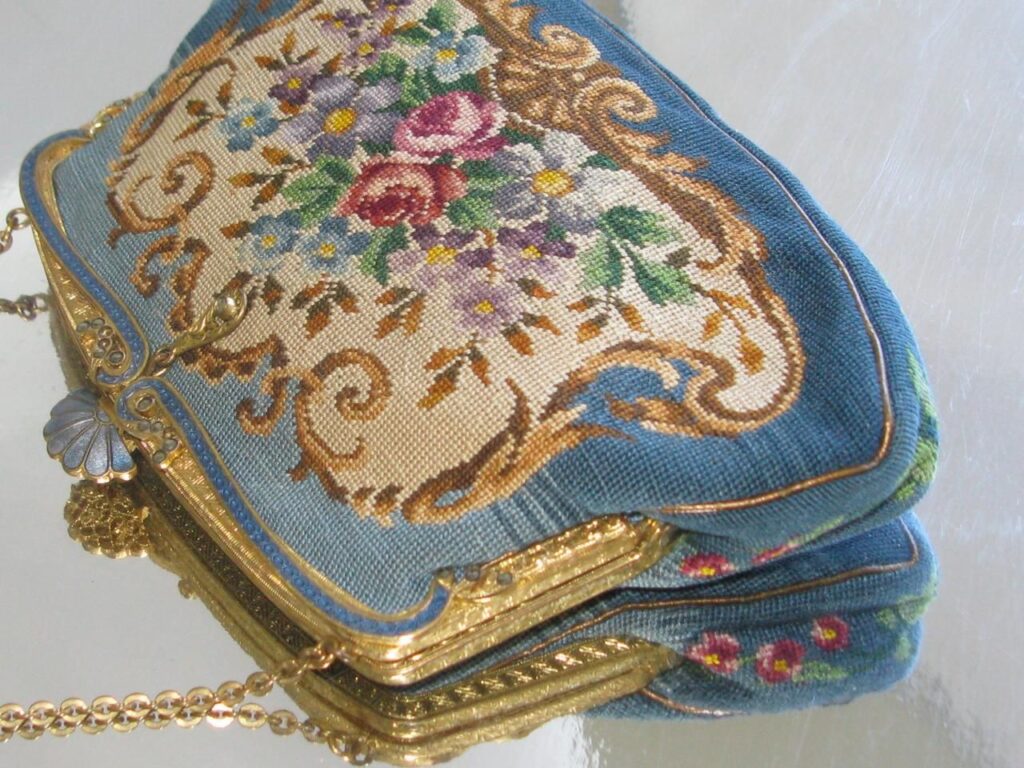
THE EARLY BEGINNINGS OF BAGS
Exploring the history of the humble bag which started hundreds of years ago. These first bags were pouches made from animal skins, cloths or plant fibers, tied together with string to carry anything from food grains, berries, or gold and silver coins. In the Bible, pouches were mentioned, and this was recorded as far back as Egyptian times where males would carry them around keeping their personal items safe from thieves or pick pockets, but were fastened to the waist by a long cord called a Girdle.
The ancient Chinese first used paper bags, to wrap and pad their tea, preserving it’s flavor which happened back in the Tang Dynasty, while in Ancient Greece women used leather pouches called Byrsa to hold their coins, and this name was later translated through Latin, which eventually became known as the Purse.
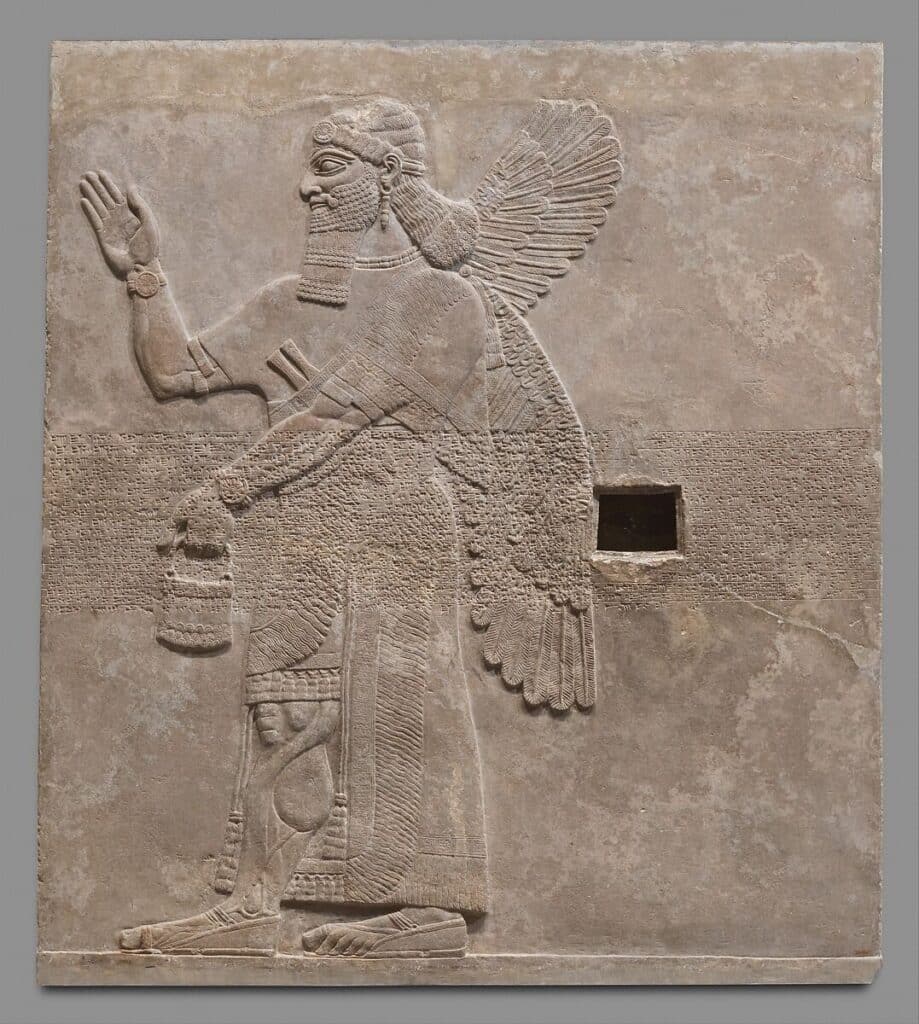

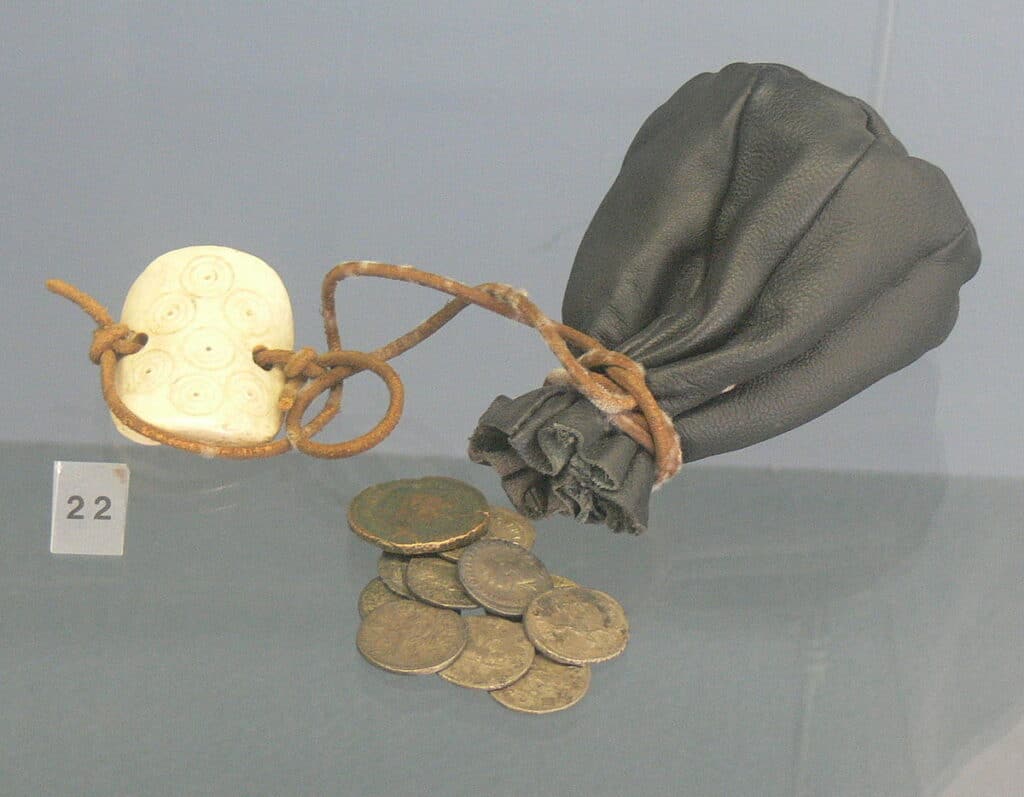
During the Medieval 14th Century, Western European and English women used draw string or pouch bags called Harmondey’s or Tasques, which were made from silk and decorated with embroidery depicting meanings to love stories or songs, but also given as wedding gifts to the Bride from her Groom. Eventually pouches made from leather were later called Chaneries, used in all aspects of Medieval life.
Different social classes in other parts meant these bags had different names – including Almoners which were carried by Noblemen to distribute funds to charities, and Gipsers which were used by common folk. During the Renaissance times of the 16th Century, women wore these pouches beneath many layers of petticoats, but men also had a leather version of the pouch, called a pocket, and wore them inside their breeches. The Pilgrims called their bags Scrips, and the very wealthy of society filled their pouches with sweet smelling substances such as Pot Pourri flowers, herbs or spices to deflect from low hygiene.
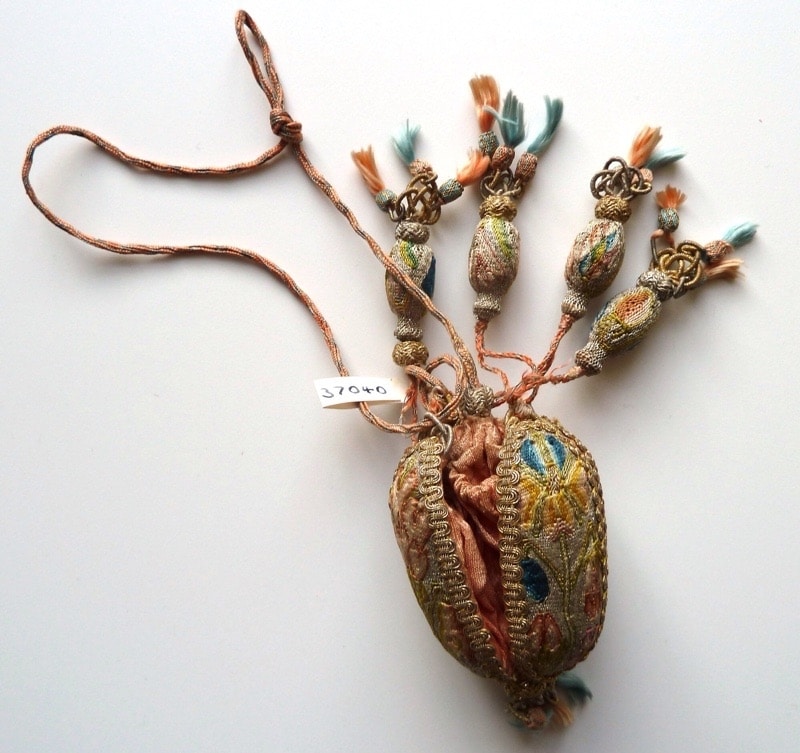
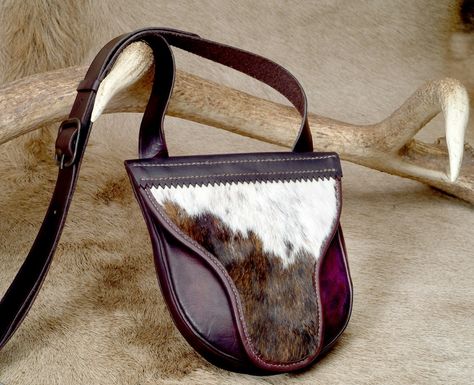
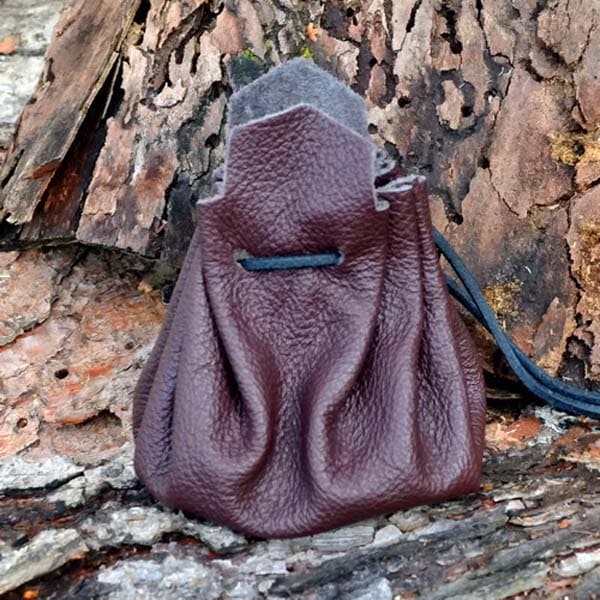
POCKETS WENT IN AND OUT OF FASHION
The 17th century saw a big change in men’s pockets, they were no longer worn tied inside the trousers but were sewn on the outside of their trousers and jackets, for easier access. However, this gave rise to pick-pocketers who had a field day finding new and ingenius ways to rip off the wealthy. Women found it difficult and unpractical to keep valuables (including jewellery) inside these detachable pockets, under their petticoats, but were expected (socially) to keep them hidden, as it was an offence to reveal ones personal items. Later, this ruling changed to a symbolic status. During the 1860’s women were seen wearing a series of chatelaines suspended from the waistline, which again gave rise to pick pocketers, who would cut the ribbons to steal them.
As fashion started to evolve to a slimmer look – and a high waisted silhouette, women opted to carry the Reticule, a small wrist-like purse that carried a hankerchief, smelling salts and rice paper to dab on the face to dull any shiny spots that appeared. These Reticules resemble a clutch purse similar to today, except a much smaller version. A modern version of the Reticule is a clutch pouch, and a good selection of patterned or embroidered versions can be found here, which often now double as makeup purses or small toiletry bags.


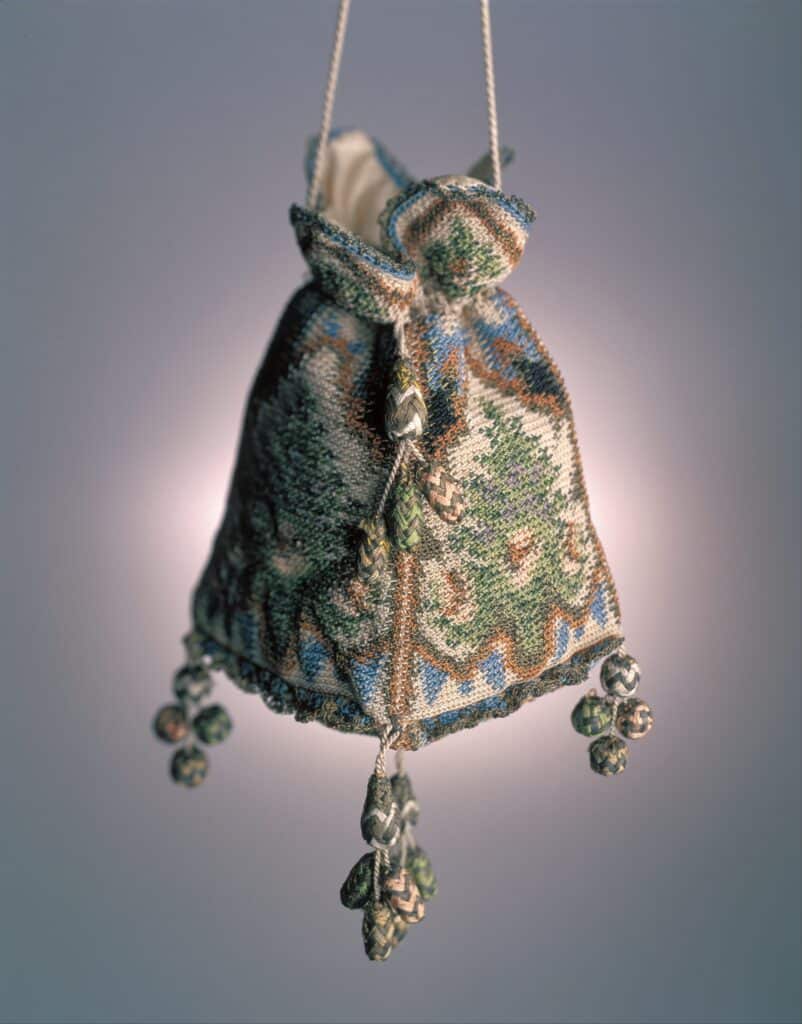
From the early 1900’s, women’s dress pockets re emerge with the “Suffragette Suit” and the Great War, where practical clothing was the key to functionality, so fashionably the pockets were again included. Later the handbag industry took off, and silhouettes became slimmer, so there was a lesser need for them, and thus were not included in many of the outfits. The changes of styles in men’s suits saw a rise with the need for the watch pocket, including the coin pocket and the ticket pocket, which were generally built into the waistcoat.
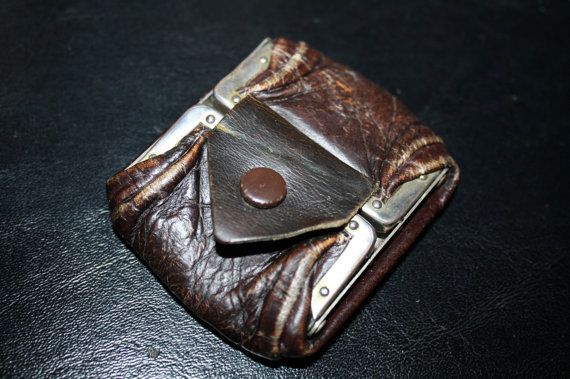
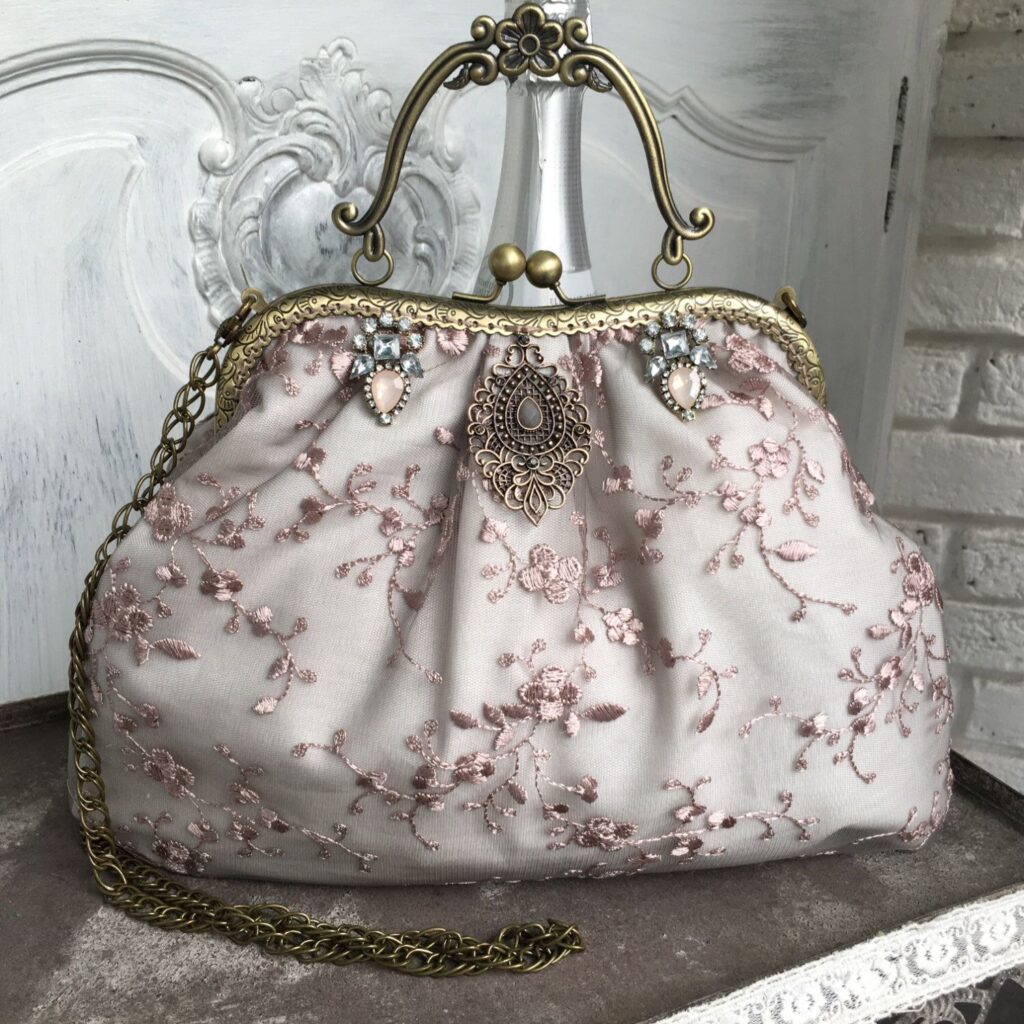
THE BRIEFCASE
Briefcases were invented way back in the 1850’s to carry money, valuables and documents, and were made of leather. These cases were known as Budgets derived from Latin and Irish words ‘Bulga and Bolg”, both meaning leather bag. Budgets were descendants of the “limp satchel“ used in the 14th century. However the French were the first in 1826 to use a hinged iron frame on a carpet bag as the very first briefcase. In the UK the Gladstone bag (named after a four time Prime Minister) became the best man’s briefcase as it was popular very popular and akin to a large travelling bag or small suitcase – made of stiff cow hide leather, belted with lanyards. These bags had compartments inside which were separated by 2 sections and served many a decade. Another option was the Roseberry, which was an oval top bag. Eventually they became the modern rectangular briefcase also known as the attache case. Contemporary designs of vintage briefcases are available here, mostly in leather – and very well made.

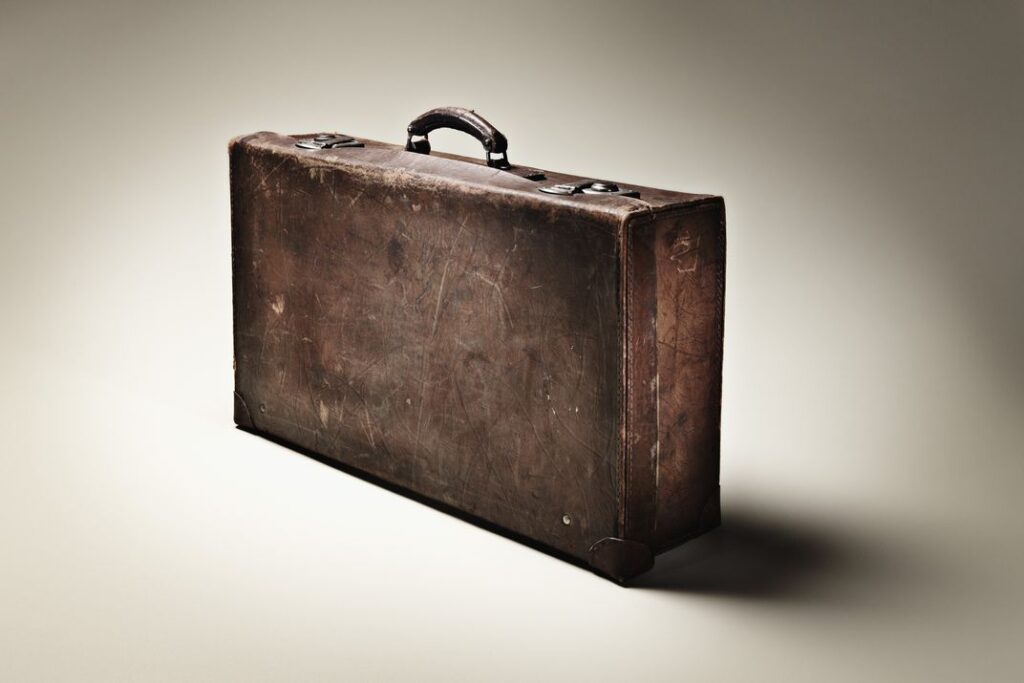
SUITCASES WERE INVENTED
The suitcase was invented and modeled after trunks, during the late 19th century by British businessmen due to the increased popularity of mass tourism – that continued into the early 20th century with the invention of steam, offering opportunities for people to travel by land or by sea, and later by air. These suitcases came with a shirt compartment, and a hat box with ample room to fit any dress suit that came wrinkle free. The suitcase was made with stretch leather, rubbery cloth or wicker, over a flat rigid frame of wood or steel with leather or brass caps, and a handle on the longer side. The importance of this suit case was that it would fit large coats as well as dress suits, worn by men or women – travelling to other countries. Wealthy people travelling with trunks were able to fit their belongings in a steamer bag which was invented by Louis Vuitton, but the poorer society used carpet bags to place their belongings inside a trunk.
During the 1930’s suitcases were constructed with lighter materials such as plastic and cardboard, but essentially marketed for women, till the 1940’s. And during the 1950’s, a German luggage company called Rimowa designed the first aluminium suitcase in a grooved design, inspired by the “Junkers Ju 52” airplane. Cabin luggage was invented many decades later in 1987, with the invention of the wheeled rollaboard bag, and it’s collapsible handle. Today cabin luggage is a “must have” among travellers, and these styles are available for a price at Selfridges – matching with your lavish vintage styled suitcase you found online, at Selfridges. Some modern inspired versions of these vintage steamer bags or trunks, are available online, in various sizes and colors – so purchase your military version today.
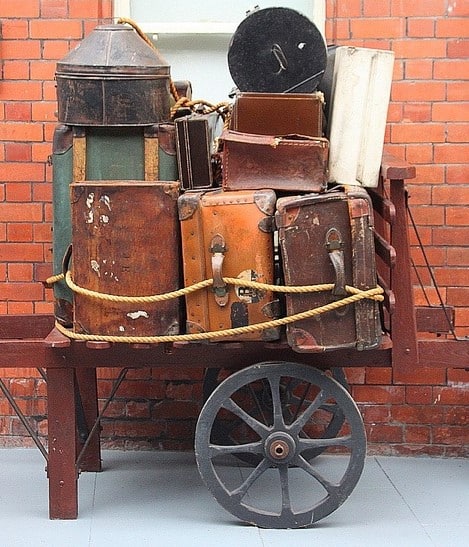
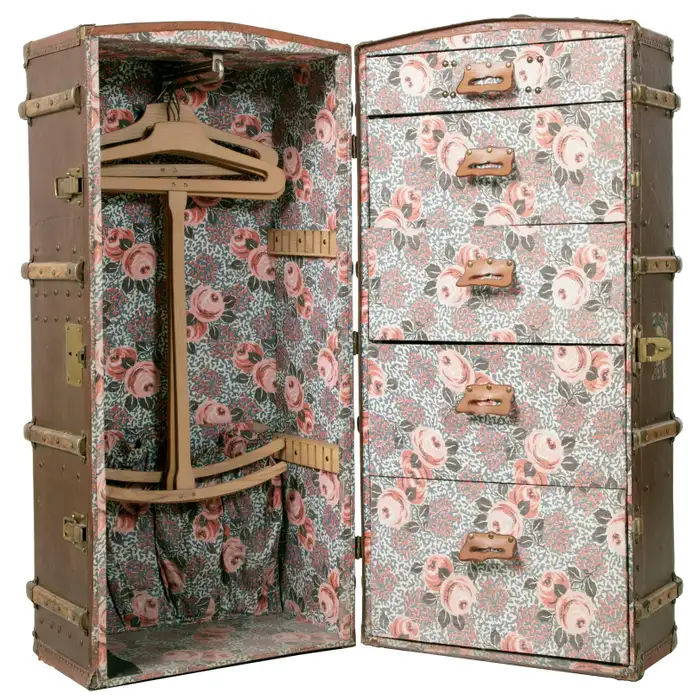
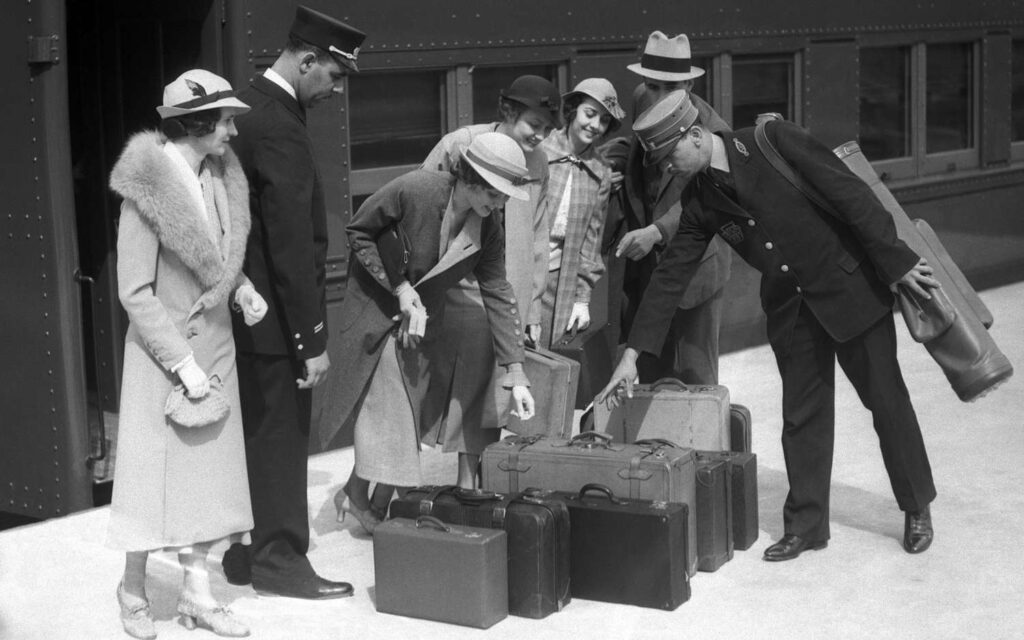
THE 1920’s HANDBAG
During the Gatsby era, the handbags of 1920’s were mere bags held in ones’ hand – with a small strap. Made of strong fabric or leather for practical day time wear, while others had a fascination with the American frontier. These bags were decorated with flowers or leaves depicting western style, and were secured by a metal snap. The frames were made of nickel steel, brass, sterling silver or gunmetal. Some were even coated with gold, silver rhodium or chrome. Evening bags were called pouchettes and were softer and more glitzy, with some shaped like an envelope, made from beads or silver mesh, however others were made from silk embroidery or tapestry, with art deco designs or embellishments. Some beautiful pouch styles are spotted within this range at Amazon, as well as online at Zapaka. Reticules were still popular, but made with opulent materials which shone in the light. These vintage bags were crafted with a level of attention to detail and quality that cannot be matched in contemporary, mass produced accessories, especially those made from durable materials such as genuine leather which showcases excellent craftsmanship.
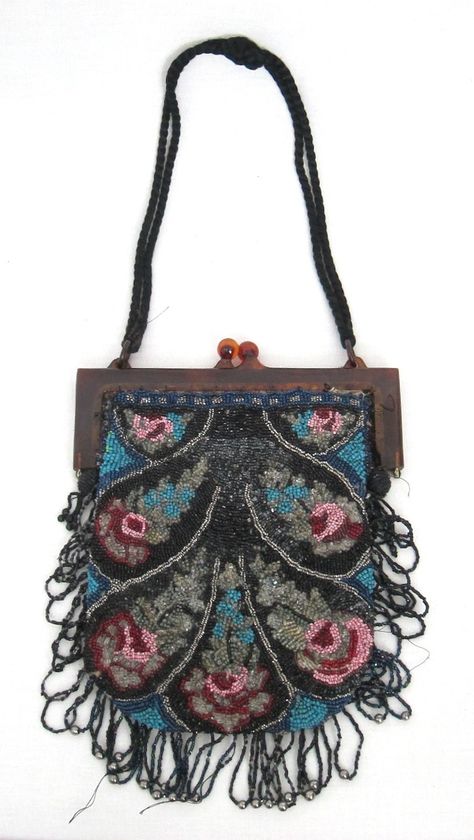
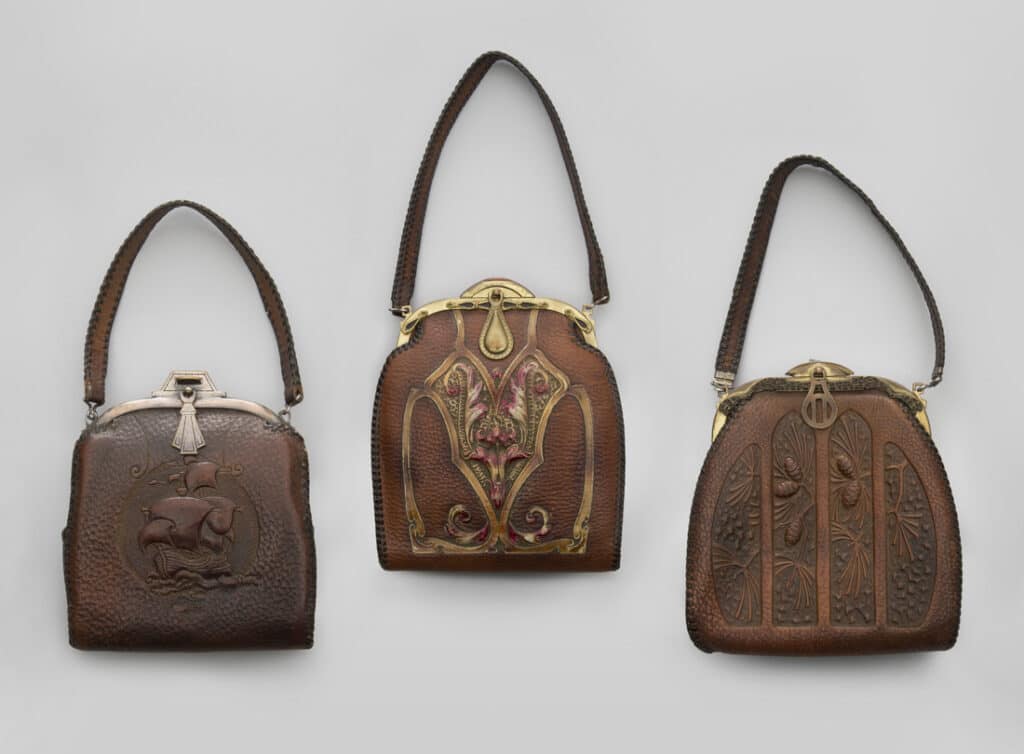
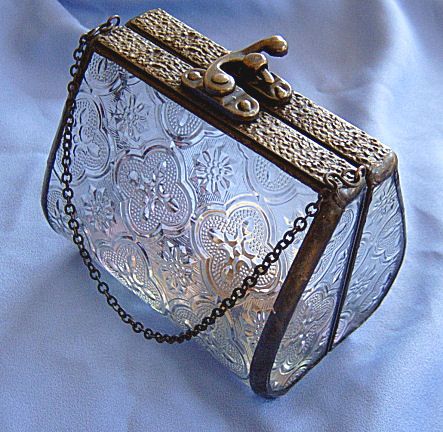
The clutch bag emerged during the 1920’s era and was considered a must have amongst women, and were either quite plain or incredibly embellished. Day time bags were made from a soft leather tool and were mostly produced with an etched symbol signalling either native, animal designs or Art Deco prints. Women generally carried some makeup such as lipstick and pressed powder, a house key, cigarettes and some coins in their bag. Small coin and note wallets also became fashionable to hold excess money, which were used by menfolk as they often footed the bill at the local merchants on behalf of their ladies. Independant women held much more in their bags – in order to hold their own, within society. These clutch bags all featured unique designs that stood out from those mass produced, but added a distinctive touch to your overall look. Today, art deco inspired clutch bags can be bought through Amazon, at prices to suit anyone.
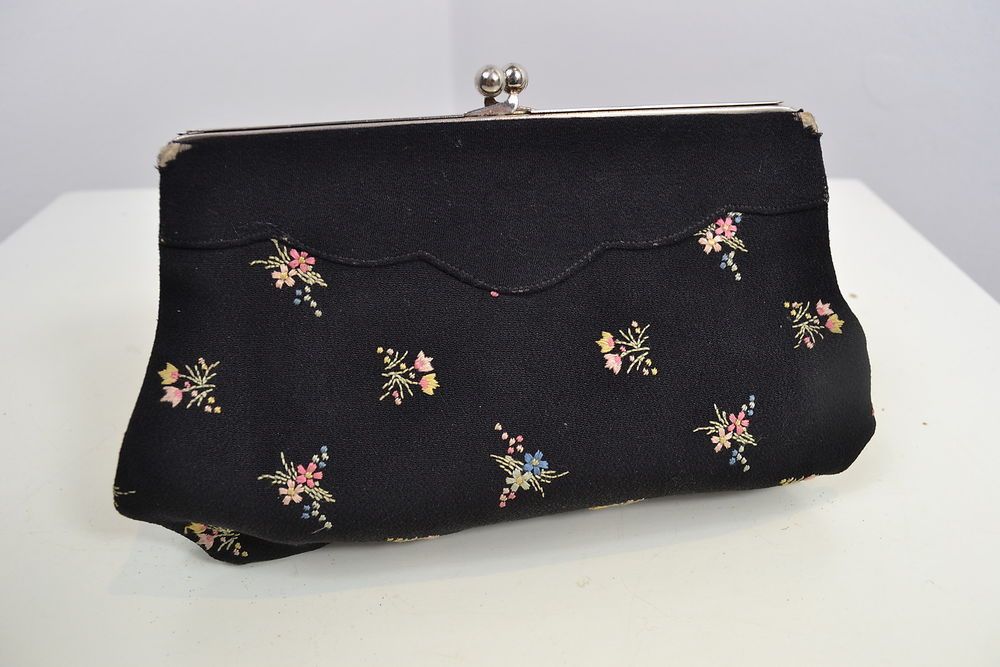
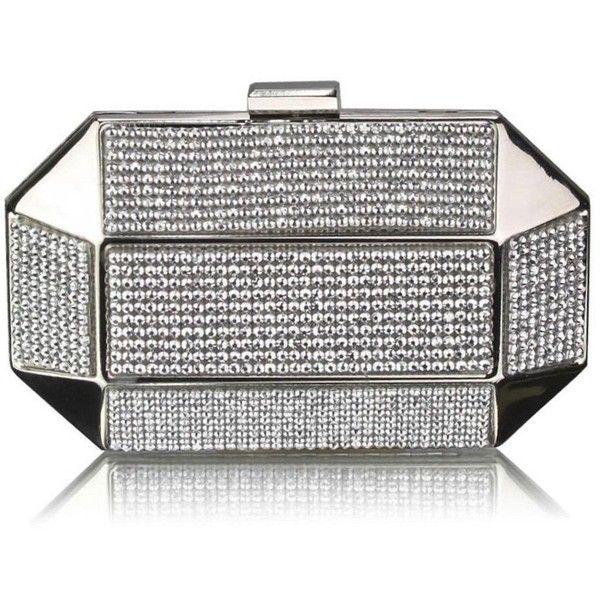
BAGS FROM THE WAR ERA
When the 2nd world war emerged, handbags from the war era were made larger to fit gas masks – considered ugly, so they carried them in the bottom of their bags that matched with their “Siren Suit”. However, a shortage of leather, zips and metal frames at the time, made women use existing frames to fashion new hand bags, which made them self sufficient and challenged their knowledge and capabilities, during war times. Men at war used duffel bags to carry their belongings in, but any larger storage units were called Barrack boxes and were made of aluminium. Duffel bags were initially made of hessian during the Great War but later made with canvas for more durability. The modern duffel bag has a few compartments and is quite user friendly – you can purchase these now.

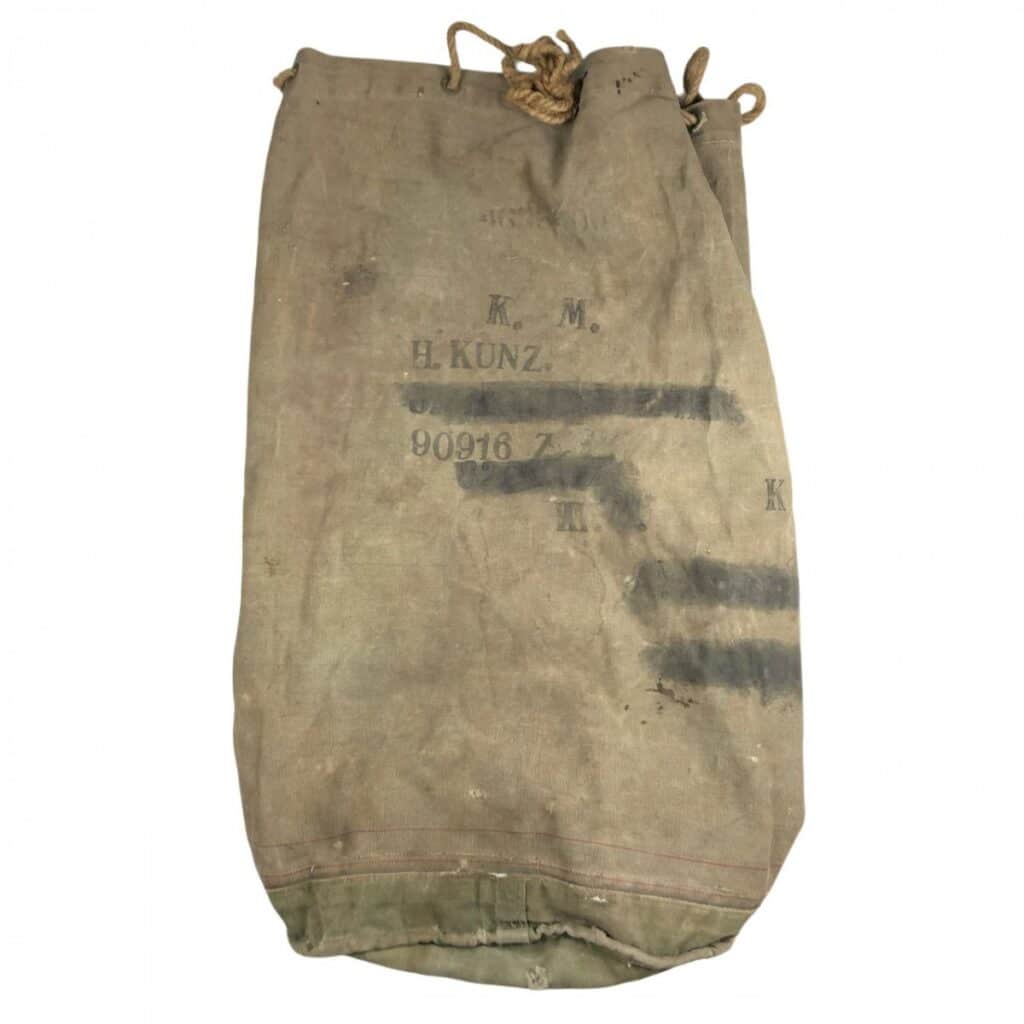
Rigid handbags with clasps were the norm for ordinary women, so a shoulder strap was invented for practicality as well as functionality. In the 1950’s A french designer called Hermes Birkin once named a handbag after the movie great Grace Kelly, which in turn followed by handbags being created for other greats like Audrey Hepburn and Sophia Loren, with this status, created huge public interest, and so handbags became a luxury item, from then onwards. An “affordable option” to the Hermes Birkin bag, can be found here. Also, learn about the variety of these 50’s handbags here. However, the rigid handbag, often exudes timeless elegance that transcends trends, as versatility is all about complementing both casual and formal outfits.
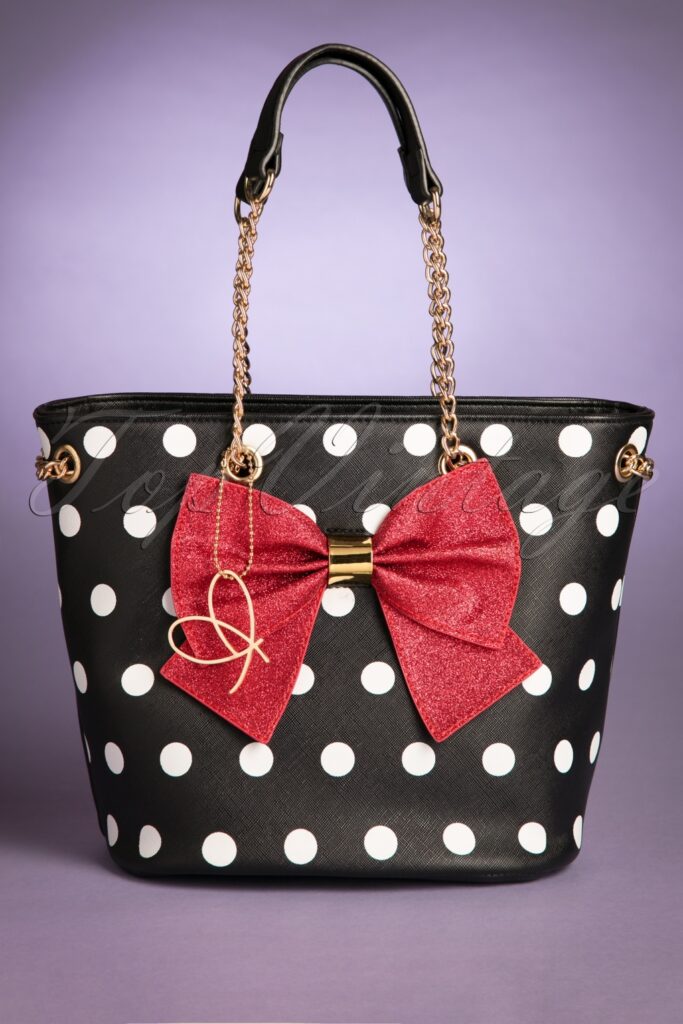
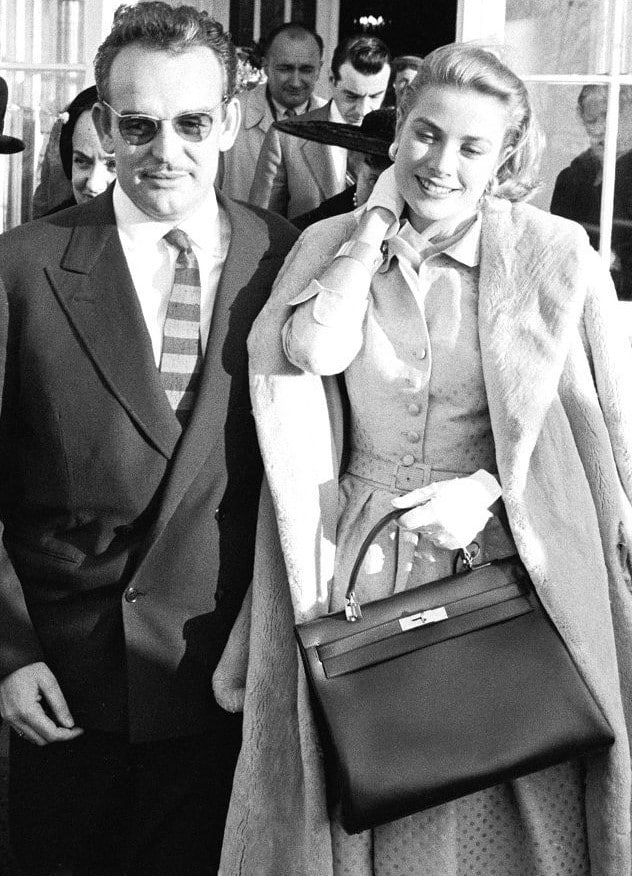
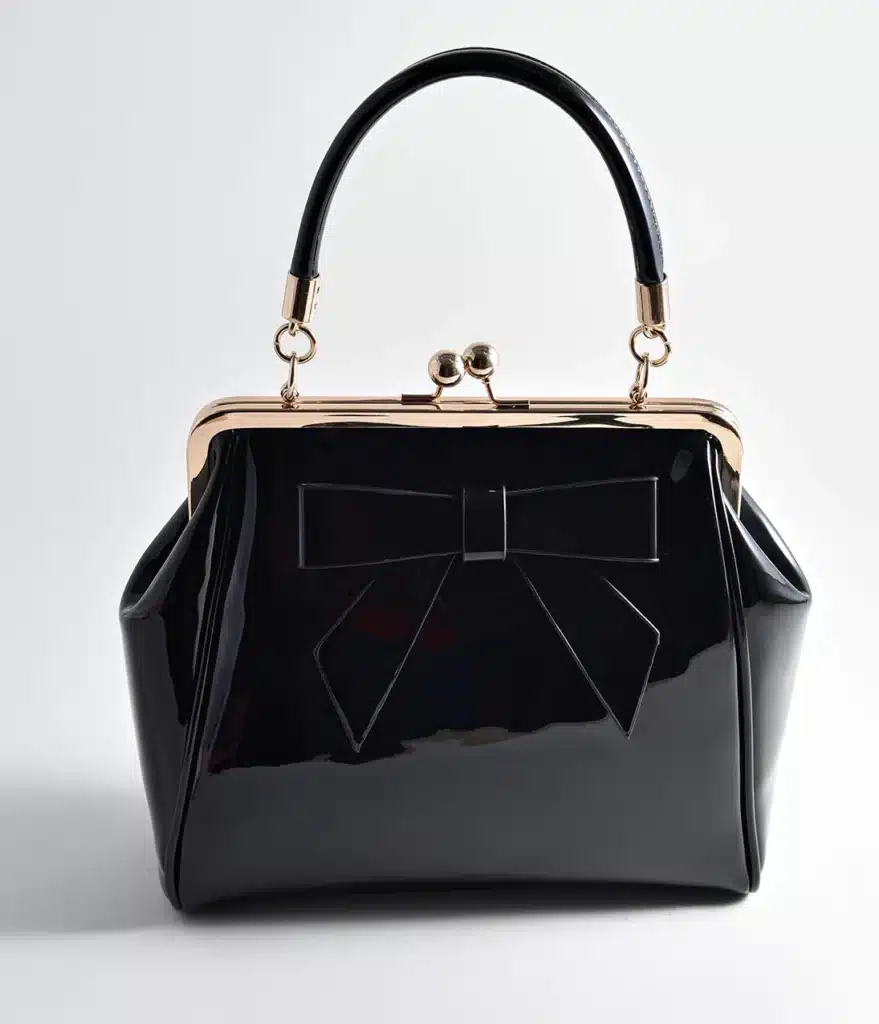
The 1960’s brought about freedom, with a sense of peace, so handbags were created according to which in-crowd you preferred to be in. Short strapped handbags in leather and man made material were popular within the corporate workers and social sets. Look at these 60’s versions of handbags ideas I have sourced for you to purchase online. The younger generation took a much casual approach to life, and with the freedom of post war social activities, they opted for long strapped swinging bags made of suede, leather or patchwork. Due to the increased interest and popularity of air travel, luggage designers crafted makeup cases for women, which proved hugely popular amongst travellers.
*As an Affiliate - I may get a commission if you click the highlighted link and purchase online*
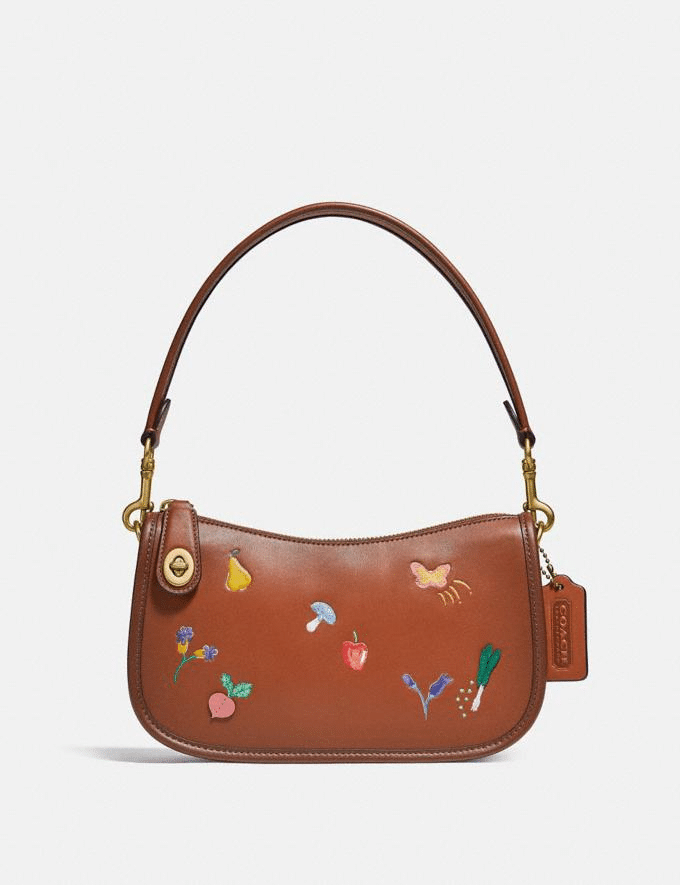
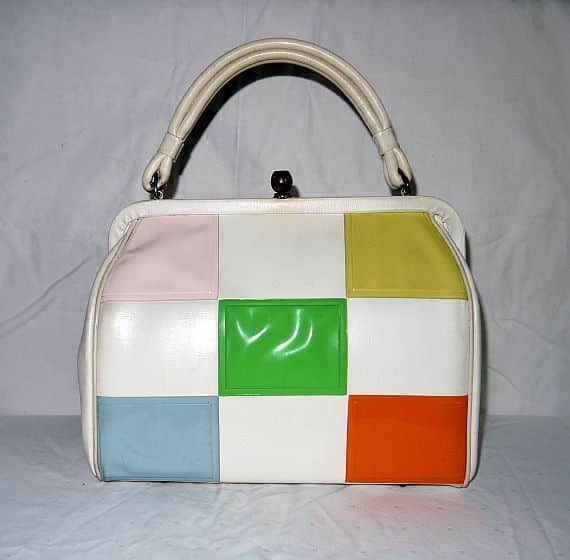
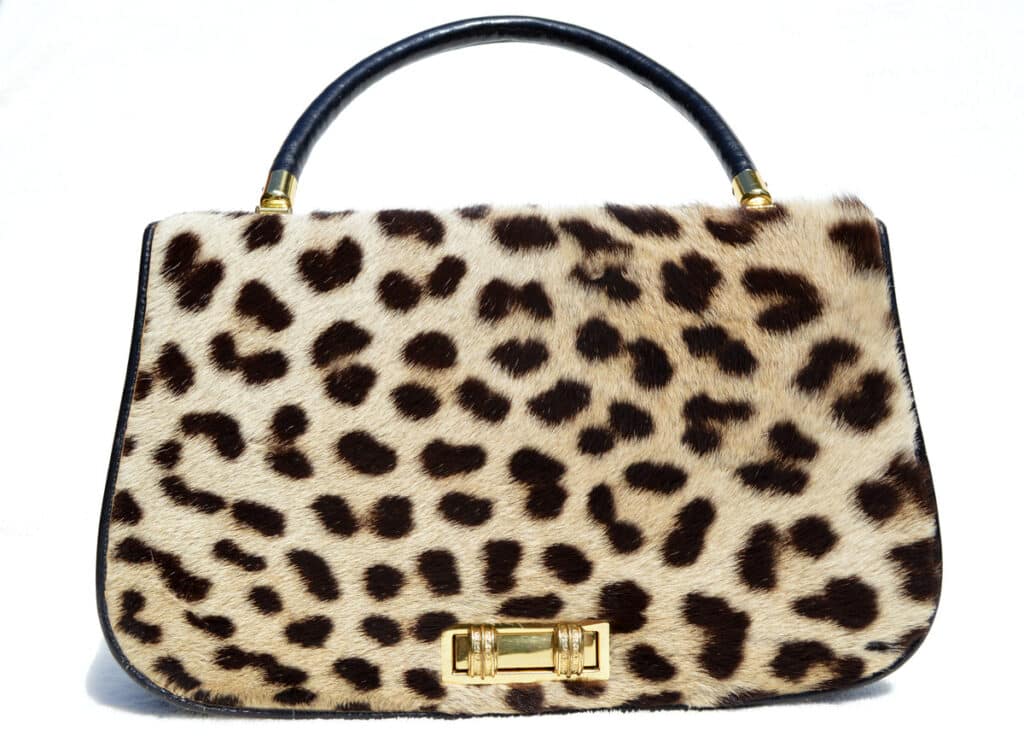
HANDBAGS OF THE FUTURE
Handbags in the future from 1980’s saw women follow the then British Prime Minister – Margaret Thatcher as she signified her femininity an iconic symbol of power, within an all male parliament. She set a trend, and had a huge following in the UK with her hand bag, signifying a woman’s place in a mans world. Next to the Royal Family, she became very popular during her time, with women following her lead gaining a higher place within a workforce of the computer age. She was never without a handbag, and would often be photographed with it. This trend continued in the decades to come, as the all important handbag became a “conversation starter” in social circles as women chose bags that often expressed or reflected their personal style and individuality, complimenting their overall aesthetic. Margaret Thatcher enthusiasts – who follow her life story can purchase her memorabilia here.
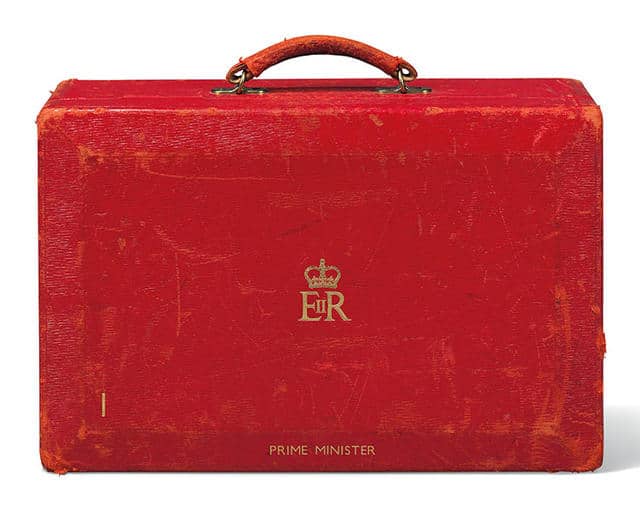
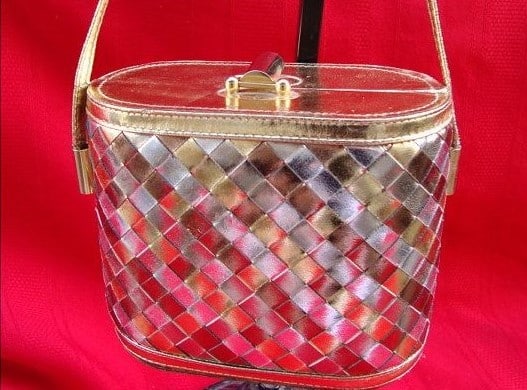
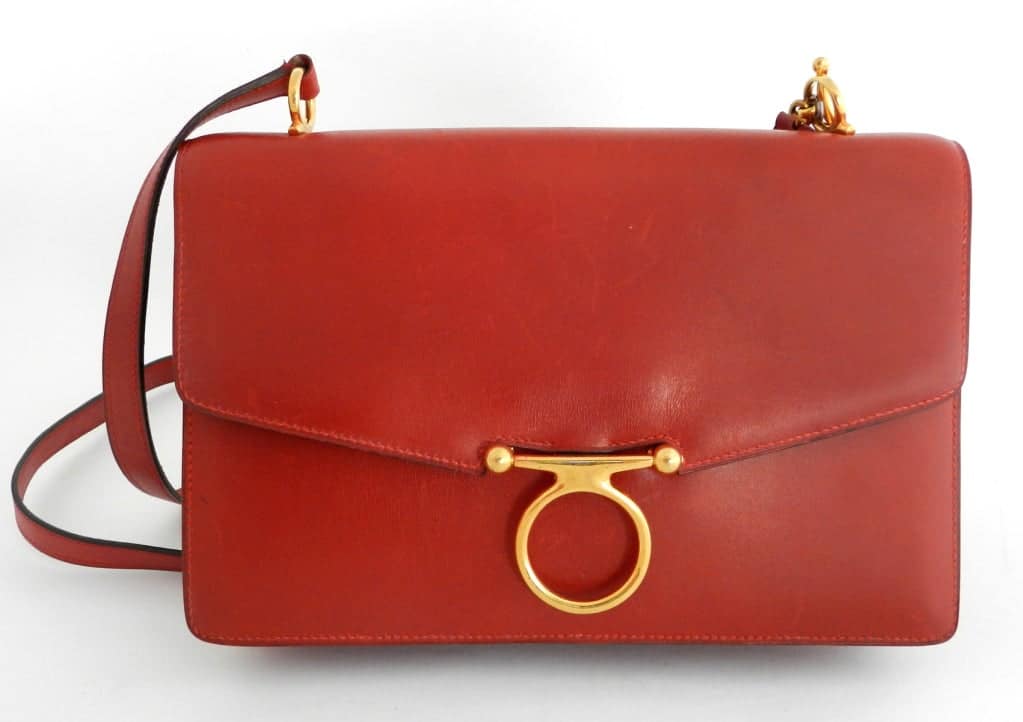
During this decade and prior to, many bags of different styles and functions were created, We saw the napsack or backpack as it is known today, the beach bag, camera bag, tote bag, bum bag, gym bag, travel bag. School bags took on a different look – they were much larger, and not made of leather or vinyl – but of soft canvas or polyester material with shoulder padding – for extra comfort and durability. Styles were chosen for their functionality and practicality, which in turn subtly created the circular fashion economy. As the decades evolved, leather was less used – except for high end handbags, and replaced by soft padded nylon bags. Plastic became widely used as merchants offered carry bags with each purchase – replacing the humble paper bag.
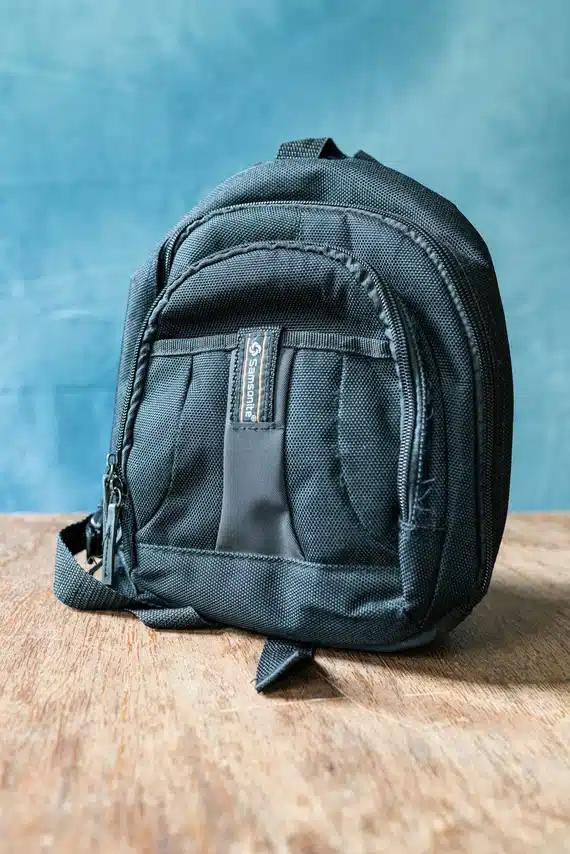
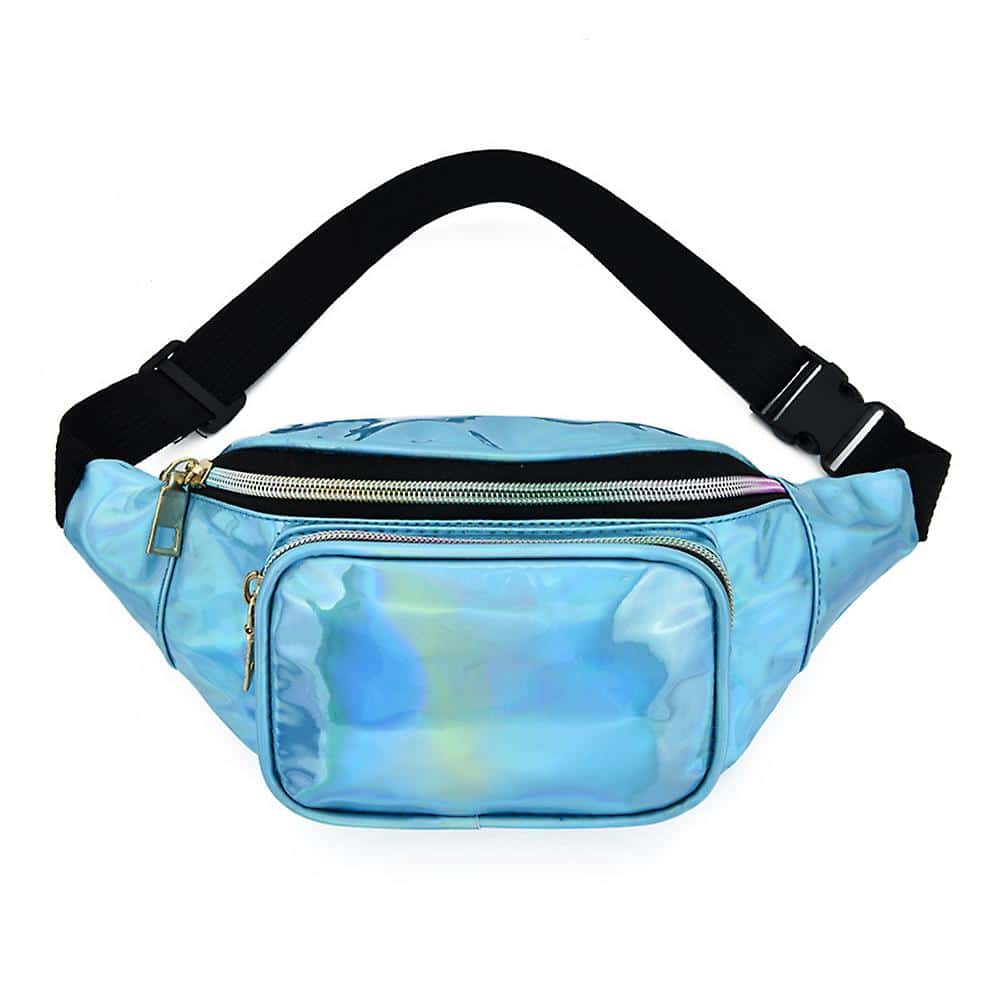
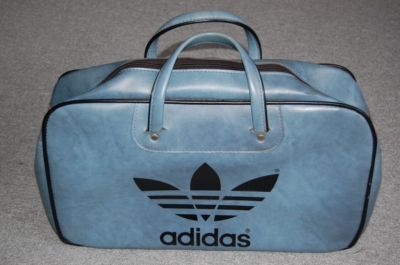
Fashion handbags became a must accessory for any woman – with the style influenced by the social excesses of this generation. Designer bags were a big hit in fashion circles made of bright colours, metallic finishes, snakeskin, and lots of heavy chains used for handles, which dated back to the 1950’s. French designers had a field day supplying retailers with the most modern and popular styles, making the clutch bag in all sizes. This style was hugely popular and every woman wanted one, led by TV personalities and celebrities. An array of 80’s handbags are available online – learn what’s available through Amazon today.
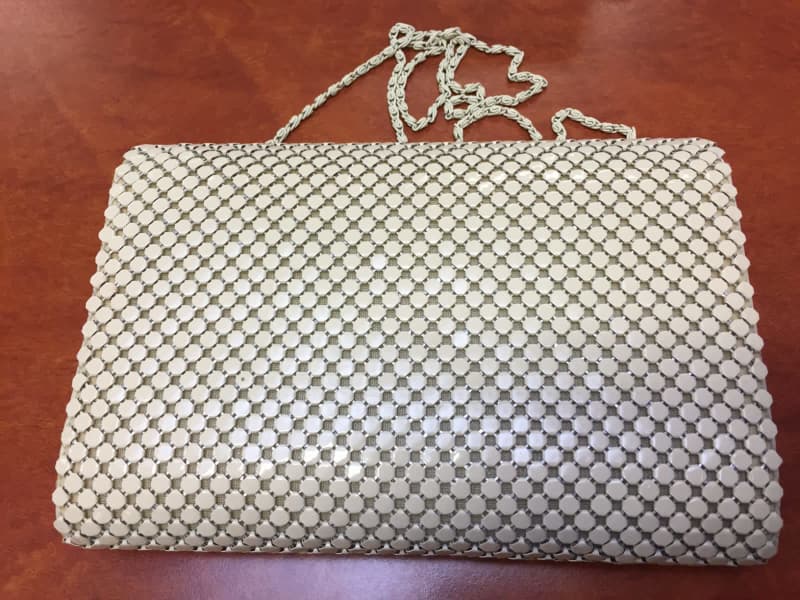
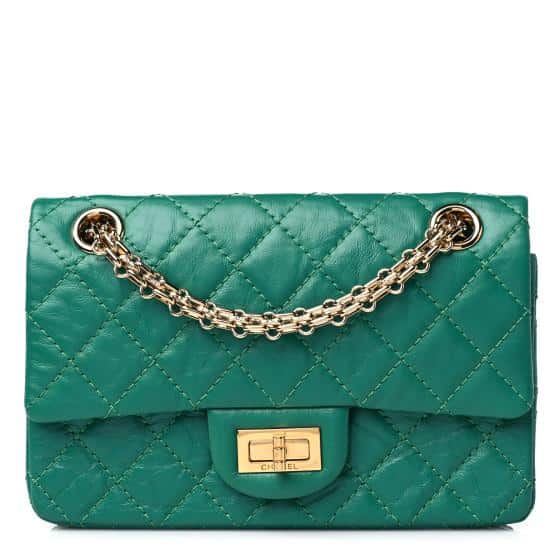
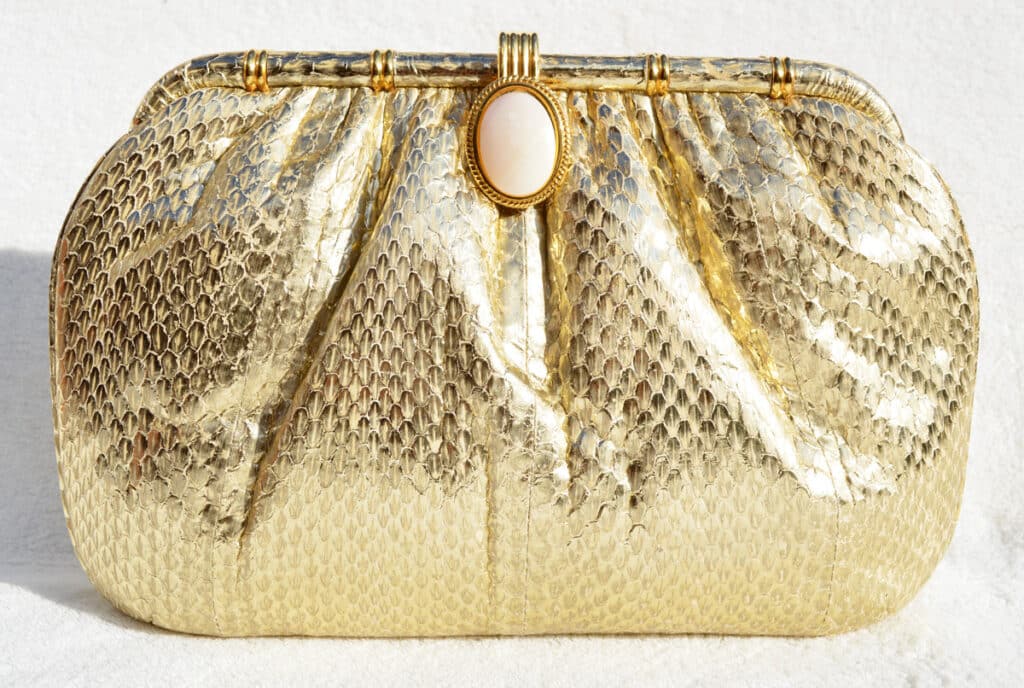
Sports and education played a huge part in the type of bag used. Men especially, would carry their belongings in very large gym bags, with many scholars opting for study portfolios. Practicality and convenience was the name of the game with designers capitalizing on these new trends, expanding their line including an array of styles and colours. The Cambridge satchel bag comes in many versions and affordable options can be bought here, for either men or women.
Another popular work bag is the all-in-one work and lunch bag – this has become a necessity in modern society, especially as tech gadgets and phones are used on a daily basis – we adapt and evolve as technology changes around us constantly. Take a look at some of these versatile work bags – shop today and purchase the ideal work/lunch bag for your business.

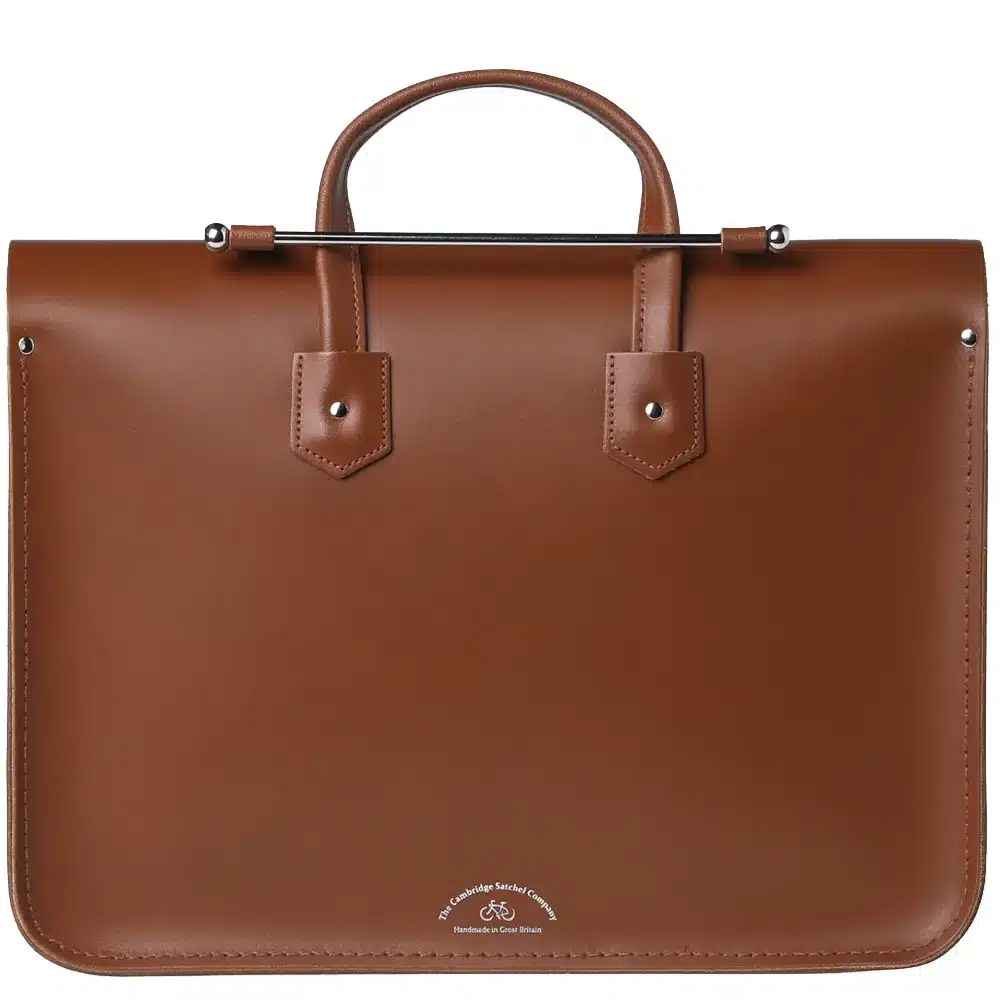
When incorporating a vintage handbag into your wardrobe consider the era. Choose a bag that aligns with the specific period or fashion trends you love. Check the condition of the vintage bag to ensure it meets your standards for both aesthetics and functionality. Mix and match within your wardrobe, as these bags can be paired with modern clothing for a chic and eclectic look.
Whether you opt for a beaded clutch, a boxy handbag, or a slouchy shoulder bag, adding a vintage purse to your ensemble can be a delightful way to showcase your appreciation for fashion history and timeless style.
I have enjoyed bringing you this historical journey of the humble handbag, and welcome any comments about my content below.
With kind regards
Helen
Connect with us via our socials or get in touch below:
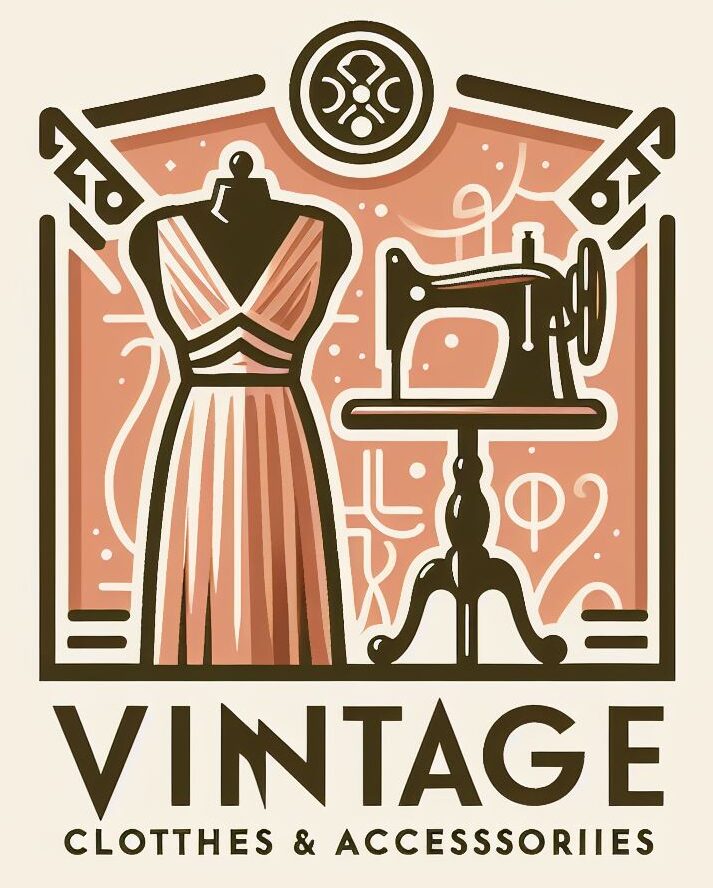

Helen Cleary takes us on a captivating journey through history, beginning with the simplest wardrobe essential – the humble coin pouch. As personal needs evolved, so too did the use of everyday must-haves, from the drawstring pouch to sophisticated Art Deco jewelled evening clutches worn by celebrities, shaping culture. Over the course of time, society’s needs outgrew yesterday’s fashion statement. Today, consumers are spoiled for choice – their personal wardrobe piece only limited by their imagination.
As they say – accessorize, accessorize, accessorize.